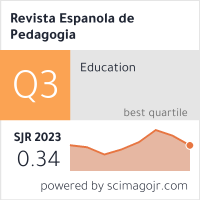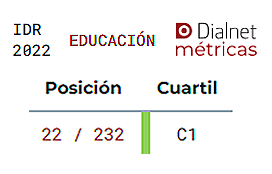DOI
10.22550/REP81-1-2023-03
Abstract
Seventy-five years ago, the Universal Dec- laration of Human Rights promoted a vision of education “directed to the full development of the human personality and to the strength- ening of respect for human rights and fun- damental freedoms" (United Nations, 1948, 26.2). In 2015, the UN Sustainable Develop- ment Goals (SDGs) took this further, stating in SDG 4 that “the knowledge, skills, values and attitudes required by citizens to lead pro- ductive lives, make informed decisions and assume active roles locally and globally in facing and resolving global challenges can be acquired through education for sustainable development and global citizenship educa- tion” (United Nations Educational, Scien- tific and Cultural Organization [UNESCO], 2016, p. 14). What might the adoption of this educational mission involve for higher education? And what does it mean in a chal- lenging global context following the COVID pandemic and the Russian invasion of Ukraine? This paper argues that the current global tu- mult should catalyse reflection as to the pur- pose and content of higher education. It focus- es on the importance of education for “values and attitudes”, emphasized as an essential component of global citizenship and leader- ship education in the rubric of SDG 4. It pro- poses a return to the philosophical categories of “character” and “virtue”, arguing that the societal orientation of global universities and their aspiration “to educate the citizens and citizen-leaders for our society” (Harvard College, 2022) necessitates a renewal of theo- retically rigorous, pedagogically effective, and practically relevant character education.
Please, cite this article as follows: Brooks, E., & Villacís, J. (2023). Formar ciudadanos y ciudadanos-líderes para nuestra sociedad: renovando la educación del carácter en las universidades | To educate citizens and citizen-leaders for our society: Renewing character education in universities. Revista Española de Pedagogía, 81 (284), 51-72. 10.22550/REP81-1-2023-03
Referencias | References
Adamsky, D. (2019). Russian Nuclear Orthodoxy: Religion, Politics, and Strategy. Stanford University Press.
Alvarado, A., Conde, B., Novella, R., & Repetto, A. (2020). NEETs in Latin America and the Caribbean: Skills, aspirations, and information. Journal of International Development, 32 (8), 1273-1307. 10.1002/jid.3503 Anscombe, G. E. M. (1958). Modern moral philosophy. Philosophy, 33 (124), 1-19.
Arias-Coello, A., Simon-Martin, J., & Gonzalo Sanchez-Molero, J. L. (2020). Mission statements in Spanish universities. Studies in Higher Education, 45 (2), 299-311. 10.1080/03075079.2018.1512569
Aristovnik, A., Keržič, D., Ravšelj, D., Tomaževič, N., & Umek, L. (2020). Impacts of the COVID-19 pandemic on life of higher education students: A global perspective. Sustainability, 12 (20), 8438. 10.3390/su12208438
Arnett, J. (2015). Emerging adulthood: The winding road from the late teens through the twenties. Oxford University Press.
Bauman, Z. (2011). From pilgrim to tourist – or a short history of identity. In S. Hall & P. du Gay (Eds.), Questions of cultural identity (pp. 18- 36). SAGE Publications Ltd.
Bayrak, T. (2020). A content analysis of top-ranked universities’ mission statements from five global regions. International Journal of Educational Development, 72 (102130). 10.1016/j.ijedudev.2019.102130
Bok, D. (2020). Higher expectations. Princeton University Press.
Bolton, P. (2022). Higher education student numbers. https://dera.ioe.ac.uk/35257/1/CBP-7857. pdf
Brant, J., Brooks, E., & Lamb, M. (2022). Cultivating virtue in the university. Oxford University Press.
Brant, J., Lamb, M., Burdett, E., & Brooks, E. (2020). Cultivating virtue in postgraduates: An empirical study of the Oxford Global Leadership Initiative. Journal of Moral Education, 49 (4), 415-435. 10.1080/03057240.2019.1682977
Breznik, K., & Law, K. M. Y. (2019). What do mission statements reveal about the values of top universities in the world? International Journal of Organizational Analysis, 27 (5), 1362-1375. 10.1108/IJOA-08-2018-1522
Brooks, E., Brant, J., & Lamb, M. (2019). How can universities cultivate leaders of character? Insights from a leadership and charac- ter development program at the University of Oxford. International Journal of Ethics Education, 4 (2), 167-182. 10.1007/s40889-019-00075-x
Callender, C., Locke, W., & Marginson, S. (2020a). Changing higher education for a changing world. Bloomsbury Publishing.
Callender, C., Locke, W., & Marginson, S. (2020b). Preface. In C. Callender, W. Locke, & S. Marginson (Eds.), Changing higher education for a changing world. Bloomsbury Publishing.
Carr, D. (2017). Virtue and character in higher education. British Journal of Educational Studies, 65 (1), 109–124. 10.1080/00071005.2016.1224806
Collini, S. (2012). What are universities for? Penguin. Cortés Sánchez, J. D. (2018). Mission statements of universities worldwide: Text mining and visualization. Intangible Capital, 14 (4), 584.10.3926/ic.1258
Dabdoub, J. P., Salaverría, A. R., Berkowitz, M. W., & Naval, C. (2022, January 6). Leveraging Colegios Mayores for character development [Paper presentation]. The 10th Annual Jubilee Center for Character and Virtues Conference. Integrating research on character and virtues: 10 years of impact. Oriel College, University of Oxford, United Kingdom. https://www.university-communities.org/_files/ugd/7500e2_7a889fd111394659aaa65f- 7337c3564b.pdf
Giddens, A. (1991). Modernity and self-identity: Self and society in the late modern age. Stanford University Press.
Grant, J. (2021). The new power university. Pearson Education.
Harvard College. (2022). Mission, vision, & history. https://college.harvard.edu/about/mission-vision-history
Hudson, L., & Mansfield, I. (2020). Universities at the crossroads: How higher education leadership must act to regain the trust of their staff, their communities and the whole nation. Policy Exchange.
Jubilee Centre for Character and Virtues, & Oxford Character Project. (2020). Character education in universities. A framework for flourishing. https://oxfordcharacter.org/assets/images/general-up- loads/Character-Education-in-Universities.pdf
Kristjánsson, K. (2015). Aristotelian character education. Routledge.
Lamb, M., Brant, J., & Brooks, E. (2021). How is virtue cultivated? Seven strategies for Post-graduate Character Development. Journal of Character Education, 17 (1), 81-108.
Lamb, M., Dykhuis, E. M., Mendonça, S. E., & Jayawickreme, E. (2022). Commencing character: A case study of character development in college. Journal of Moral Education, 51 (2), 238-260. 10.1080/03057240.2021.1953451
Locke, W. (2020). Visions of higher education futures: The shape of things to come? In C. Callender, W. Locke, & S. Marginson (Eds.), Changing higher education for a changing world. Bloomsbury Publishing.
MacIntyre, A. (2007). After virtue: A study in moral theory. Duckworth.
Marginson, S. (2014). Student self-formation in international education. Journal of Studies in International Education, 18 (1), 6-22. 10.1177/1028315313513036
Marginson, S. (2016). High participation systems of higher education. The Journal of Higher Education, 87 (2), 243-271. 10.1080/00221546.2016.11777401
Marginson, S. (2020). Public and common goods: Key concepts in mapping the contributions of higher education. In C. Callender, W. Locke, & S. Marginson (Eds.), Changing higher education for a changing world. Bloomsbury Publishing.
Marginson, S. (2022). What drives global science? The four competing narratives. Studies in Higher Education, 47 (8), 1566-1584. 10.1080/03075079.2021.1942822
Marginson, S., Callender, C., & Locke, W. (2020). Higher education in fast moving times: Larger, steeper, more global and more contested. In Callender, W. Locke, & S. Marginson (Eds.), Changing higher education for a changing world. Bloomsbury Publishing.
Massachusetts Institute of Technology. (2022). Mission and objectives. https://policies.mit.edu/policies-procedures/10-institute/11-mission-and-objectives
Miles, M. B., Huberman, A. M., & Saldaña, J. (2018). Qualitative data analysis: A methods sourcebook. SAGE Publications.
Milovanska-Farrington, S. (2020). Reasons to attend college, academic success, and post-college plans. Education Economics, 28 (5), 526-547. 10.1080/09645292.2020.1801597
Naciones Unidas (1948). Declaración Universal de los Derechos Humanos. https://www.un.org/es/documents/udhr/UDHR_booklet_SP_web.pdf
Naval, C., Villacís, J. L., & Ibarrola-García, S. (2022). The transversality of civic learning as the basis for development in the university. Education Sciences, 12 (4), 240. 10.3390/educsci12040240
Organisation for Economic Co-operation and Development (2018). Education at a glance 2018. OECD Publishing.
Collini, S. (2012). What are universities for? Penguin. Cortés Sánchez, J. D. (2018). Mission statements of universities worldwide: Text mining and visualization. Intangible Capital, 14 (4), 584. 10.3926/ic.1258
Dabdoub, J. P., Salaverría, A. R., Berkowitz, M. W., & Naval, C. (2022, January 6). Leveraging Colegios Mayores for character development [Paper presentation]. The 10th Annual Jubilee Center for Character and Virtues Conference. Integrating research on character and virtues: 10 years of impact. Oriel College, University of Oxford, United Kingdom. https://www.university-communities.org/_files/ugd/7500e2_7a889fd111394659aaa65f-7337c3564b.pdf
Giddens, A. (1991). Modernity and self-identity: Self and society in the late modern age. Stanford University Press.
Grant, J. (2021). The new power university. Pearson Education.
Harvard College. (2022). Mission, vision, & history. https://college.harvard.edu/about/mission-vision-history
Hudson, L., & Mansfield, I. (2020). Universities at the crossroads: How higher education leadership must act to regain the trust of their staff, their communities and the whole nation. Policy Exchange.
Jubilee Centre for Character and Virtues, & Oxford Character Project. (2020). Character education in universities. A framework for flourishing. https://oxfordcharacter.org/assets/images/general-up-loads/Character-Education-in-Universities.pdf
Kristjánsson, K. (2015). Aristotelian character education. Routledge.
Lamb, M., Brant, J., & Brooks, E. (2021). How is virtue cultivated? Seven strategies for Post-graduate Character Development. Journal of Character Education, 17 (1), 81-108.
Lamb, M., Dykhuis, E. M., Mendonça, S. E., & Jayawickreme, E. (2022). Commencing character: A case study of character development in college. Journal of Moral Education, 51 (2), 238-260. 10.1080/03057240.2021.1953451
Locke, W. (2020). Visions of higher education futures: The shape of things to come? In C. Callender, W. Locke, & S. Marginson (Eds.), Changing higher education for a changing world. Bloomsbury Publishing.
MacIntyre, A. (2007). After virtue: A study in moral theory. Duckworth.
Marginson, S. (2014). Student self-formation in international education. Journal of Studies in International Education, 18 (1), 6-22. https:// doi.org/10.1177/1028315313513036
Marginson, S. (2016). High participation systems of higher education. The Journal of Higher Education, 87 (2), 243-271. 10.1080/00221546.2016.11777401
Marginson, S. (2020). Public and common goods: Key concepts in mapping the contributions of higher education. In C. Callender, W. Locke, & S. Marginson (Eds.), Changing higher education for a changing world. Bloomsbury Publishing.
Marginson, S. (2022). What drives global science? The four competing narratives. Studies in Higher Education, 47 (8), 1566-1584. https:// doi.org/10.1080/03075079.2021.1942822
Marginson, S., Callender, C., & Locke, W. (2020). Higher education in fast moving times: Larger, steeper, more global and more contested. In Callender, W. Locke, & S. Marginson (Eds.), Changing higher education for a changing world. Bloomsbury Publishing.
Massachusetts Institute of Technology. (2022). Mission and objectives. https://policies.mit.edu/policies-procedures/10-institute/11-mission-and-objectives
Miles, M. B., Huberman, A. M., & Saldaña, J. (2018). Qualitative data analysis: A methods sourcebook. SAGE Publications.
Milovanska-Farrington, S. (2020). Reasons to attend college, academic success, and post-college plans. Education Economics, 28 (5), 526-547. 10.1080/09645292.2020.1801597
Naciones Unidas (1948). Declaración Universal de los Derechos Humanos. https://www.un.org/es/documents/udhr/UDHR_booklet_SP_ web.pdf
Naval, C., Villacís, J. L., & Ibarrola-García, S. (2022). The transversality of civic learning as the basis for development in the university. Education Sciences, 12 (4), 240. 10.3390/educsci12040240
Organisation for Economic Co-operation and Development (2018). Education at a glance 2018. OECD Publishing.
Citación recomendada | Recommended citation
Brooks, E., & Villacís, J. L. (2023). Formar ciudadanos y ciudadanos-líderes para nuestra sociedad: renovando la educación del carácter en las universidades | To educate citizens and citizen-leaders for our society: Renewing character education in universities. Revista Española de Pedagogía, 81 (284), 51-72. https://doi. org/10.22550/REP81-1-2023-03
Licencia Creative Commons | Creative Commons License
Esta obra está bajo una licencia internacional Creative Commons Atribución-NoComercial 4.0.
This work is licensed under a Creative Commons Attribution-NonCommercial 4.0 International License









